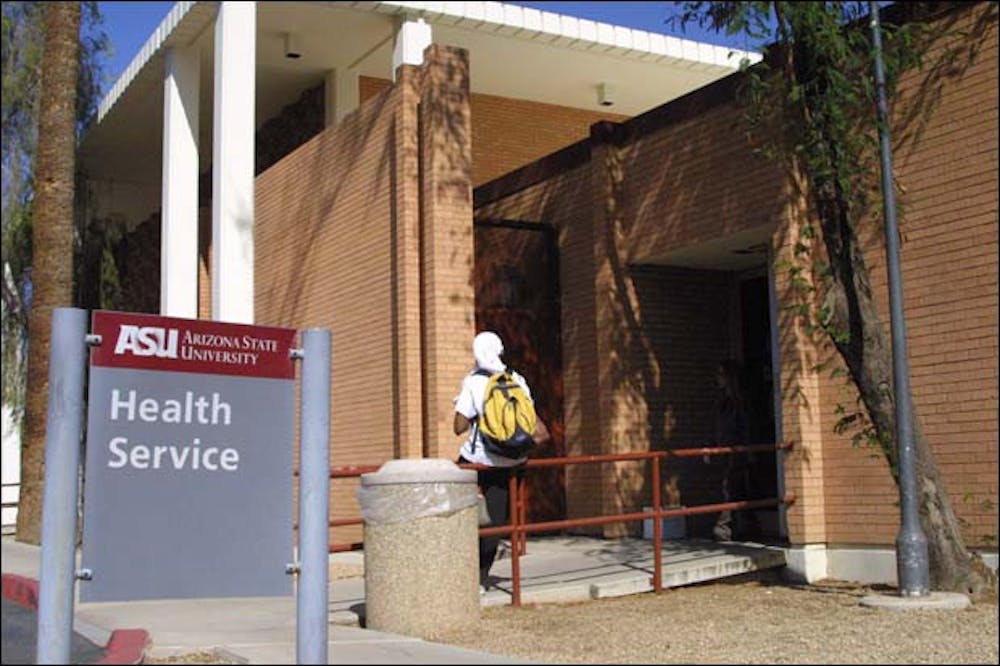With flu season approaching, students are faced with the challenge of staying healthy.
For many, stress and lack of nutrition can cause unhealthy habits to take over.
Criminal justice senior Samantha Inga said she is always on the go and so are many of her peers.
“If you look around, someone always has an energy drink, a Starbucks, fast-food, something in their hands,” Inga said.
Family nurse practitioner at the ASU Health Center in downtown Phoenix Keira Stevens said eating well and exercising 30 minutes a day, five times a week can reduce the risk of chronic disease.
“A lot of chronic diseases are preventable and if you start [making] healthy choices now, you can prevent diseases like heart disease, diabetes and obesity down the line,” Stevens said. “But you have to start now and make it a lifestyle change.”
Eating frequent, smaller meals is usually a healthier choice than eating two big meals because a person needs to spread his or her calories out throughout the day, Stevens said.
College of Nursing and Health Innovation lecturer Bonnie Beezhold said that while eating well throughout the day can be a very difficult task for students because of their schedules, the Web site Mypyramid.gov is a way to combat the issue.
“You put your age in with your activity level and you will get specific [guidelines],” Beezhold said.
Research shows dietary guidelines have been useful for many in the quest to reduce chronic disease, she said.
Stevens said the cafeteria on the Downtown campus, which is similar to options on other campuses, offers a mix of choices.
“It offers a variety of very healthy choices, but they also offer a variety of unhealthy choices,” Stevens said. “It would really be up to the students to make sure they are making healthy choices.”
While Beezhold and Stevens both agree that the college lifestyle is detrimental to students’ health, they both also agreed that the unhealthiest habits are picked up while living on campus.
“College students are limited in the choices they can make, especially if they live in the dorms,” Stevens said.
College of Nursing and Health Innovation professor Barb Ainsworth said even though peer pressure and limited choices are a major hindrance for those who live on campus, being healthy really depends on the individual student.
“A lot has to do with the student’s ability to interact with their environment,” Ainsworth said. “Being healthy is a generic term that relates to different areas of well-being.”
Mental, physical, spiritual and general well-being all go into being a truly healthy person, she said.
Mental health has much to do with the ability to manage stress, which is important to overall health, Beezhold said.
Stevens said there are two types of stress: positive and negative. Good stress is needed because it gets a person out of bed in the morning and supplies motivation to get daily activities accomplished.
Although some stress has a positive impact, “negative stress can increase your blood pressure,” Stevens said. “We want to eliminate negative stress.”
Too much stress can cause the body to release the hormone cortisol, which can cause a person’s heart rate, as well as his or her blood pressure, to increase, which is detrimental to health, Ainsworth said.
Reach reporter at katelyn.bolnick@asu.edu.




